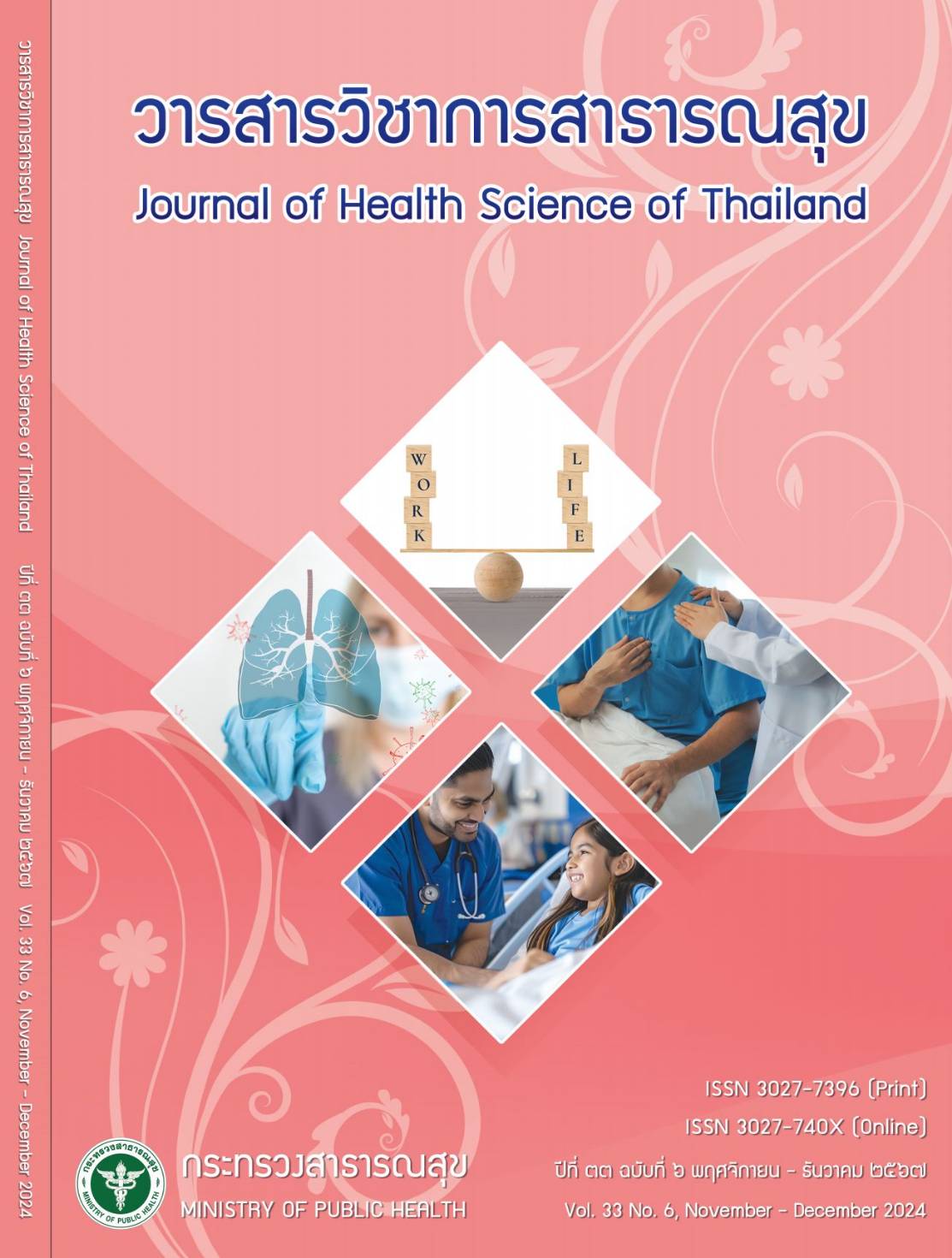Factor Affecting Work-life Balance of the Medical Technologists Working in the Government Hospitals, Office of the Permanent Secretary, Ministry of Public Health, Thailand
Keywords:
work-life balance, medical technologists, public hospitalAbstract
Personnel management to achieve work-life balance maintains personnel within the organization.
This cross-sectional survey research aimed to study work-life balance and its related factors of a medical
technologist sample group in public hospitals under the Ministry of Public Health, Thailand. The number
of samples was 852 participants. We collected the data via an online questionnaire (Google Form) from
April to May, 2023. The research instrument content validity was 0.81 and the Cronbach’s alpha coefficient
was 0.84-0.98. We analyzed the data using descriptive statistics, Pearson’s product moment correlation
coefficients, and stepwise multiple regression analysis, and the statistical significance level was
set at <0.05. The results indicated that medical technologist’s work-life balance was at moderate level.
There were significant relationships between work-life balance and gender, age, professional experience,
duration of work in hospitals, family support, number of working hours per week, work culture, and types
of hospitals (p<0.05). Five factors were identified as predictors of work-life balance: work culture, types
of hospital, number of working hours per week, duration of working in hospitals, and family support, with
collectively predicting 20.10% of the variance in work-life balance. (Beta = 0.31, 0.16, 0.15, 0.12,
and 0.07, respectively). Therefore, to increase the level of work-life balance of medical technologists in
public sectors, hospital administrators should pay attention to the appropriateness of total working hours
per week. In addition, it is importance to foster the participative working culture in relationship-building
activities. These will create opportunities for retaining the medical technologist within the organization.
Downloads
Downloads
Published
How to Cite
Issue
Section
License
Copyright (c) 2024 Ministry of Public Health

This work is licensed under a Creative Commons Attribution-NonCommercial-NoDerivatives 4.0 International License.







